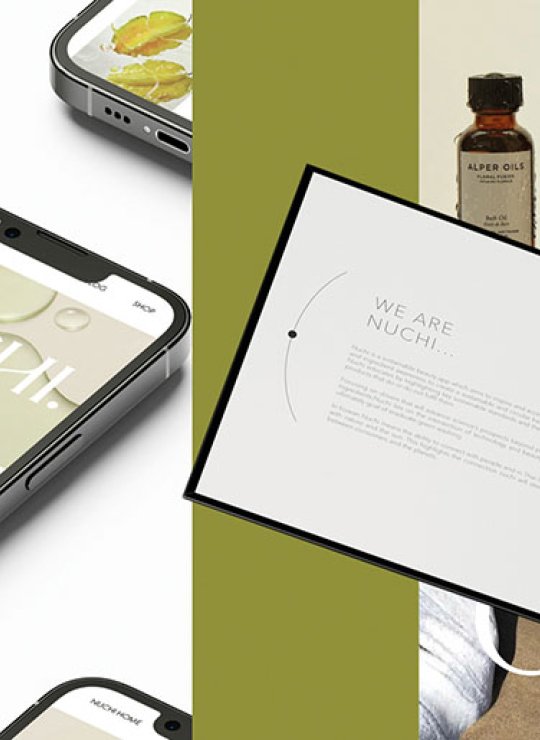
Fashion Marketing BA(Hons)
Become an accomplished creative with a sought-after skillset.
Course overview
Fashion is one of the biggest global industries, but its impact goes beyond the economic to shape culture and society. Join this Fashion Marketing degree and learn to develop and execute creative marketing strategies that will cut through the noise.
Working with real clients while you study, you’ll gain experience in social media marketing, strategic planning, branding and advertising, digital and in-person experiences in e-commerce and retail visual merchandising, PR and promotion. You’ll collaborate with a multitude of creative talent to bring your fashion marketing campaigns to life – including fashion designers, art directors, photographers and filmmakers.
Why study at Falmouth?
- Join a supportive and ambitious community of creatives and hone your strategic thinking alongside visual and written communication skills
- Work on live projects with partners that could include brands such as Finisterre, Seasalt and creative agencies like WMH&I
- Collaborate with photographers, designers and creators to build a standout portfolio
- Take on projects and campaigns that embrace societal issues such as sustainability, gender, ethnicity and supply chain ethics
- Graduate from a course accredited by the Chartered Institute of Marketing (CIM)
Fashion Marketing BA(Hons) is also accredited by the leading professional marketing body for marketers; The Chartered Institute of Marketing (CIM). This means students who successfully complete the full undergraduate degree with a minimum of a 2:2 are eligible for exemptions against CIM qualifications.
Accredited Degree students have the opportunity to complete the qualifications whilst studying or following graduation.
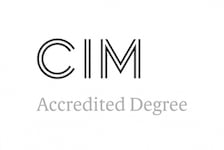
Lead image by Kiera Sylvester.
Course details
On this Fashion Marketing degree, you'll have the opportunity to gain a BA(Hons) degree over three years or the option to study Fashion Marketing BA(Hons) with Integrated Foundation Year and/or placement year study options.
You'll explore visual and verbal communication principles, international marketing strategies and contextual fashion and lifestyle concepts – refining your understanding of the industry and how its products and services are promoted. And with our accreditation and close alignment with the Chartered Institute of Marketing, we keep our practices and industry knowledge up-to-date.
The first year of the Fashion Marketing degree introduces you to the broad knowledge required to become a professional creative marketer. You’ll develop core skills in business, communication, creative research, development and production.
Through lectures, seminars, tutorials and workshops, the academic and technical course team will support learning in research methods, idea generation and writing skills for different contexts. You’ll learn to use digital software tools and experiment with practical production techniques.
Modules
Marketing Essentials
You’ll be introduced to the core principles of marketing and gain a solid understanding of the role of marketing, its language and its purpose. This module is written to align with the CIM curriculum and forms part of the exemption subjects for the course accreditation.
Fashion Marketing Communications
You’ll identify a range of marketing communications concepts, technologies and creative processes in a commercial fashion context. Analysing traditional and digital marketing communication frameworks, you’ll apply theories of marketing to the production of a communications strategy.
Belonging
Collaborating with students across the Fashion & Textiles Institute, you’ll engage with themes of inclusivity and diversity, situated in the context of global histories and subcultures. You’ll explore the ethical language of fashion in the context of visual and written communications.
Branding
This module looks at the fundamentals of a brand. You’ll explore a range of brand development challenges, take a look at fashion industry case studies and break down brand auditing, leading through to exploring how brand identity creation works.
Visual Communications
You’ll explore visual language in the context of fashion image-making and content generation. You'll experiment with styling and art direction for still and moving-image, graphic design and editorial content, using industry-standard production techniques for print and digital channels.
Histories
In this module you’ll produce a piece of written work; enhancing your skills in critical thinking and positioning your practice in the context of cultural, theoretical and historical concepts.
Year two of the Fashion Marketing course sees the focus on exploring the industry as professional practitioners. You’ll examine the global ecosystem and analyse a broad range of future-facing topics using challenge-based learning, collaboration, practical planning and production methods.
Modules
Global Fashion Futures
This module examines globalisation relative to the production and consumption of fashion and textiles and its subsequent impact on the production ecosystem. You’ll analyse a broad range of topics, such as emerging consumer behaviours, socio-cultural drivers and new technologies, in order to forecast future scenarios and to communicate potential sustainable and ethical development solutions.
Promotion
The Promotion module takes a practical approach in supporting your understanding of campaign planning and production methods. You’ll develop creative solutions to promotional challenges, marketing and PR campaigns, in a range of commercial contexts.
Retail
You’ll gain insights into the contemporary fashion retail environment through buying, merchandising and visual presentation techniques. You’ll investigate the theory through practical application and working with industry professionals throughout the module. The world of physical retail and e-commerce is fast-paced, and this module will teach you how to navigate the uncertainty and understand how marketing plays a role in the dynamics, from supply chain to the consumer and back-again.
Collaboration
You’ll focus on communication skills, problem-solving, critical thinking, teamwork, listening, negotiation and reflection. In joining interdisciplinary teams across the University, you’ll work towards common project goals which will enhance your employability and communication skills.
Theories
You’ll produce a written piece of work, enhancing your skills in criticality and positioning of your practice in the context of cultural, theoretical and historical concepts. You’ll also develop your ideas for your final year dissertation or extended research project.
You'll begin this 30-week work placement year by creating a study and work plan – advised on and approved by your course team and the University's career service. Then, under the direction of an employer, you'll learn first-hand about different roles and your position in the industry. This is your chance to reflect and develop the kind of work-based skills required by longer live projects, typically seasonal buying cycles.
Modules
Employment Experience
This is an industry placement option. You will undertake a period of supervised work experience of 30 weeks or more, under the direction of an employer or several employers, and with a university-based academic mentor. This will enable you to develop and operate in a course-related working environment. You are required to evidence your experiences, reflecting on your skills acquisition and professional outlook in a report or blog-style documentary.
You’ll align your professional practice and apply core marketing and critical analysis skills in this employability focused year. With an optional sandwich year in industry or final year of study. The Fashion Marketing degree culminates in a self-defined, negotiated project.
Modules
Professional Strategies
In this module, you will evaluate your own learning journey and skills acquisition in preparation for opportunities after graduation. You'll create a communication strategy and portfolio of presentation materials reflecting your personal professional identity in a range of print and digital formats.
You'll also have the chance to explore and plan for your final major project. The focus will reflect your individual interests, as you work towards creating the perfect portfolio of work in the context of your personal career aspirations.
Marketing Strategies
In this module, you’ll evaluate contemporary practice and performance of fashion marketing strategies using marketing planning frameworks and methodologies. You’ll focus on digital communications, consumer behaviours and broader business insights.
Investigations
You’ll complete a dissertation or extended research project. You’ll reflect on your personal research strengths and engage in considered debate and detailed discussion of a chosen topic. This is an independently led project with academic support.
Final Major Project Part 1
Undergoing your own research and planning, you will devise a project proposal for a detailed marketing opportunity or action in a fashion or lifestyle context, whilst aligning with current and future-facing global issues.
Final Major Project Part 2
You’ll expand your project proposal and produce a set of deliverables to a client, consumer, colleague or organisation, generating digital and /or physical outputs.
Why study an Integrated Foundation Year route?
If you’re taking on a new subject that you haven’t studied in depth before, have been out of education for a while or have a non-standard educational background then an Integrated Foundation Year degree may be the right choice for you. It is a four-year degree with an Integrated Foundation Year to start, which allows you to explore the primary elements of your subject before progressing on to the remaining three years of the BA(Hons) degree.
What you'll learn
If you choose this pathway, you'll study five core modules in your Foundation year. These are all designed to help you explore the foundational elements of your subject. You'll gain relevant technical skills, learn to experiment and take risks, develop an understanding of professional practice, have opportunities to work across disciplines and collaborate with other students on live project briefs.
Modules
Explore
You'll begin your foundation year by working collaboratively with others to explore themes of the future. You'll take risks, experiment through play and be supported to break through barriers.
Technique
You'll take subject-specific workshops and develop essential technical and practical skills in your area of study. You'll also enhance your analytical and organisational abilities.
Apply
You'll work with your peer group to think beyond discipline by addressing a societal or global issue. You'll then showcase your work to your peers and deliver an accompanying evaluation of your process.
Industry
You'll enhance your creative and practical skills in your subject specialism by responding to typical industry briefs, underpinned by focused research and experiments. You'll also gain industry insights through guest lectures and workshops.
Launch
You'll develop your unique identity in your specialism through the production of a self-initiated body of work. Your final project will be the bridge to your next year, fully supported by evaluative reviews and critical analysis of the work you have created.
After the Foundation year, you progress into Year One of the full three-year degree, equipped with a deeper knowledge of your subject, a clear understanding of your strengths, and develop a practical and technical skillset and the confidence to excel in your chosen subject.
If you apply for and enrol onto a degree with an Integrated Foundation Year, you’ll have the option to switch onto a five-year version including a placement year. That means you’ll complete the first three years of your course before completing a placement in industry in your fourth year and returning to Falmouth for the fifth year of your programme.
From module information to course aims and assessment criteria, discover the full course details:
We regularly review course and module content to ensure our students receive a high-quality and rewarding academic experience. As such, there may be changes made to the curriculum which are not immediately reflected in the content displayed on our website. Optional modules may be updated to maintain the best experience. Any students or applicants affected will be informed of approved changes directly.
Our students and graduates
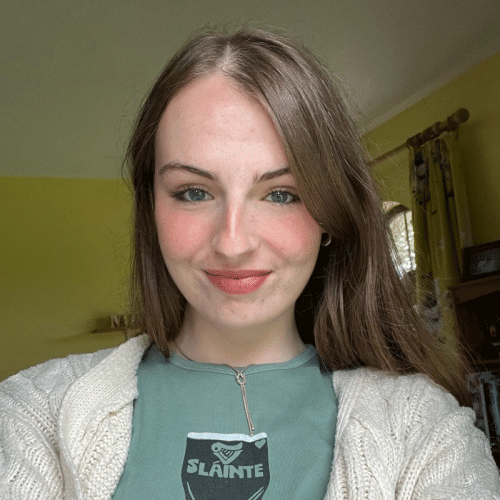
Meet the graduate who landed her dream job with Community Clothing
After nurturing essential skills needed to excel within the fashion industry, graduate Mairead Frizzell landed a Marketing Assistant role for Patrick Grant’s clothing brand Community Clothing.
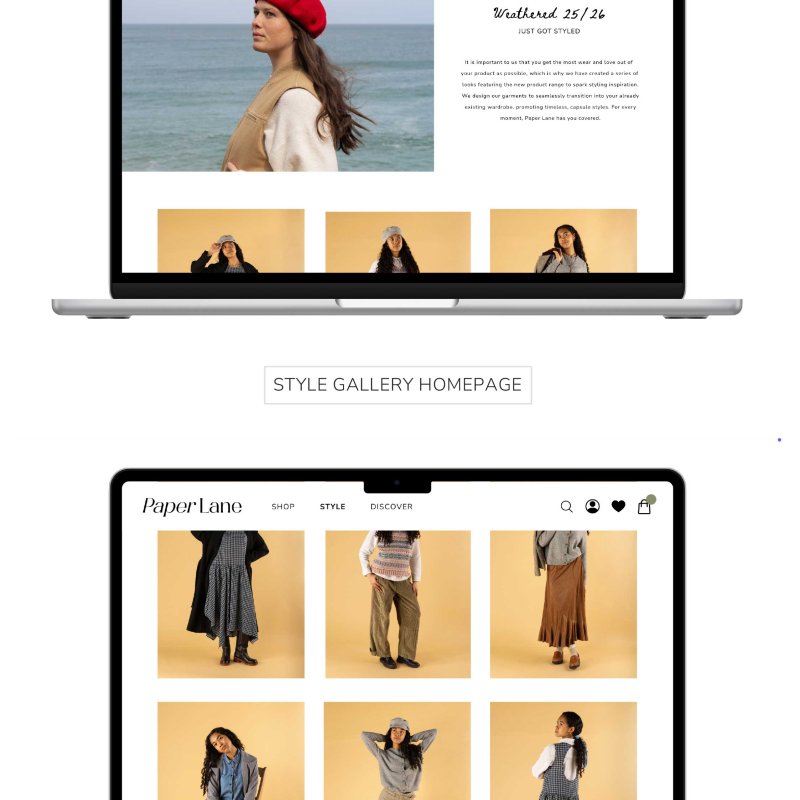
Work by Isabelle Markham
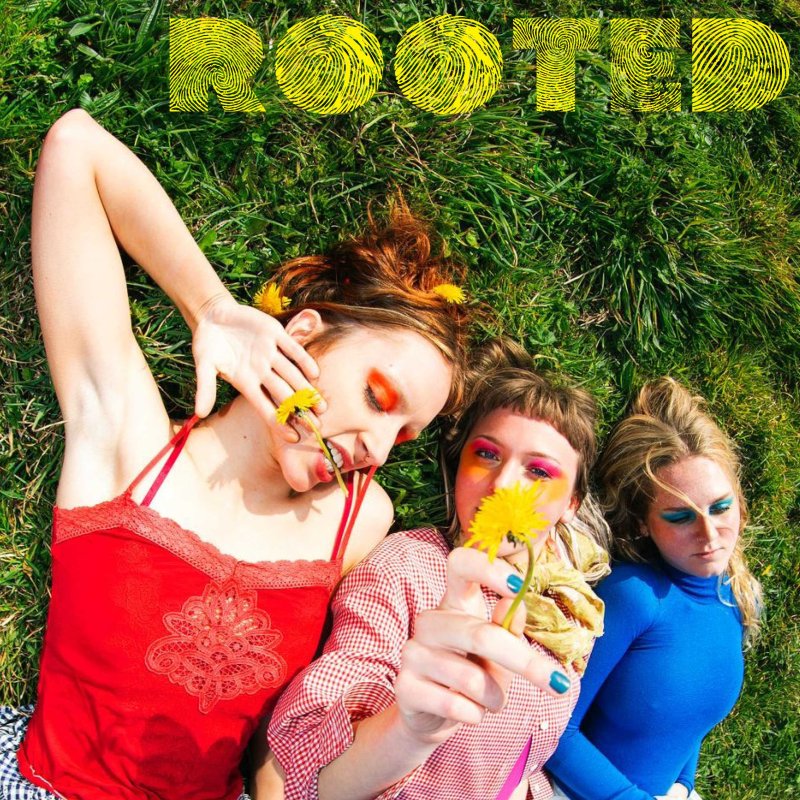
Work by Annabelle Bouilov
Stories from our community
Explore student projects, graduate successes, staff news and industry insights.
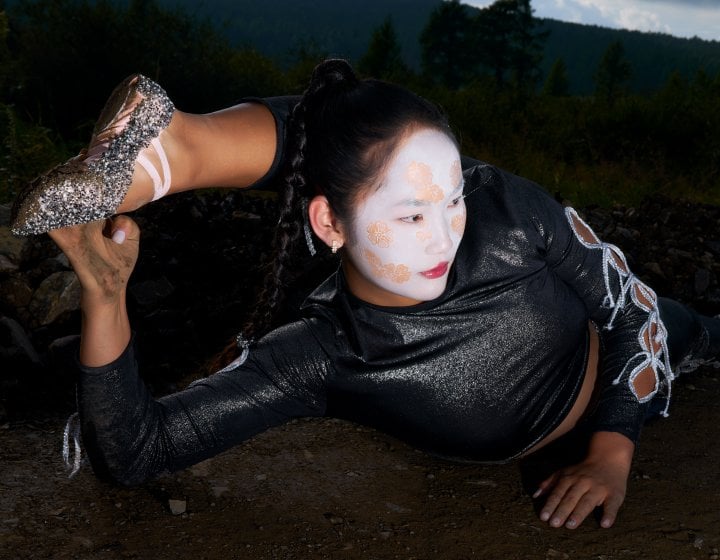
Fashion Photography alumna awarded grant by PhotoVogue
09 December 2025
2024 BA(Hons) Fashion Photography alumna Narantsetseg Khuyagaahas been awarded the Rising Voice Gran...
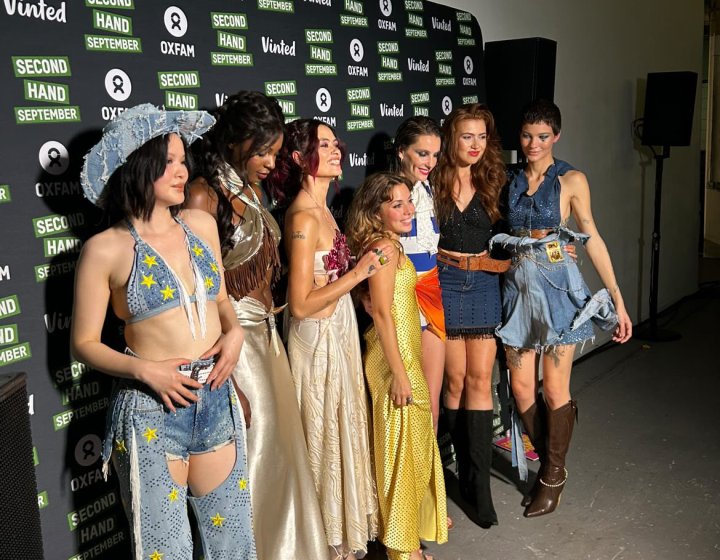
Credit: Vinted
Fashion graduate wins Vinted RE/style competition by creating catwalk looks from second-hand garments
25 November 2025
When Fashion Design BA(Hons) graduate Chiara Corso applied to be on a TV show, she didn’t think fo...
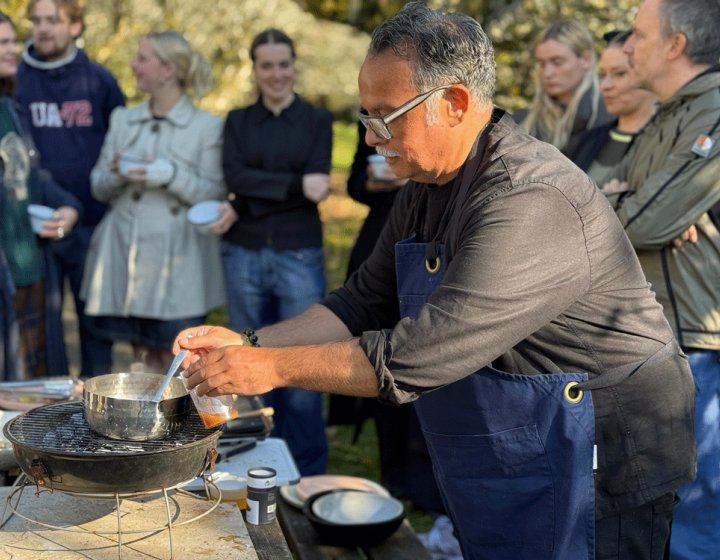
MasterChef UK winner visits fashion students to share insight on creative direction
18 November 2025
Falmouth’s Fashion & Textiles Institute recently welcomed Steven Wallis, the culinary innovator an...
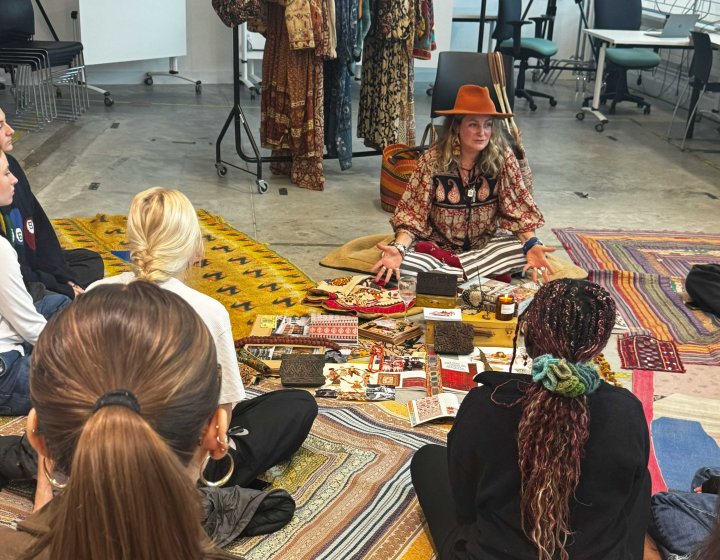
Fashion marketing students get brand-building masterclass from Naked Generation
10 November 2025
Creative businesswoman Lara Merrill founded slow fashion brand Naked Generation back in 2018, and wh...
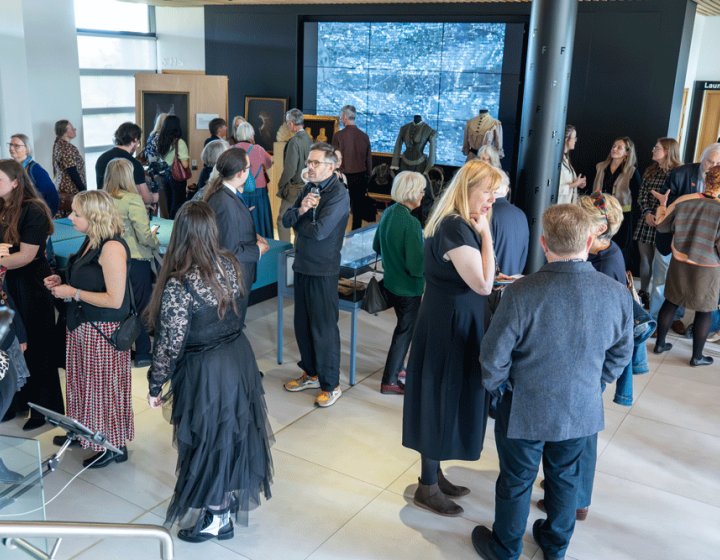
Falmouth University takes custodianship of prestigious historic clothing collection
03 November 2025
Computer games, high-definition digital archiving and immersive visitor experiences are just some of...
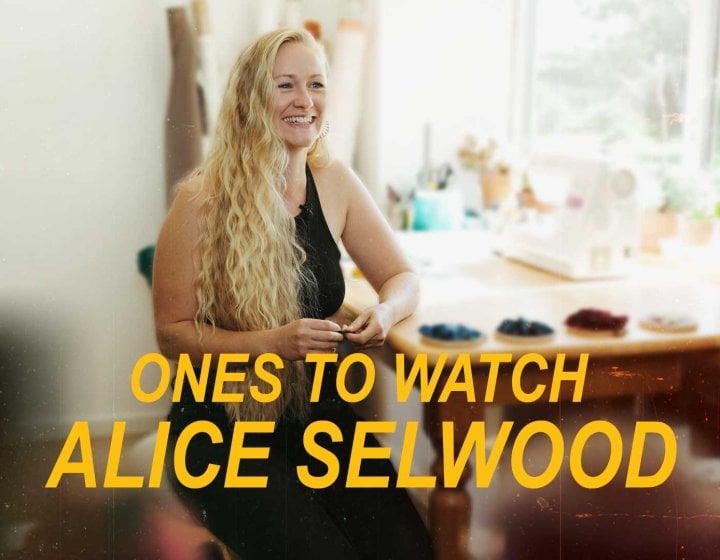
Fashion & Textiles alumna on freelance success, sustainability and the allure of Cornwall
03 October 2025
Alice Selwood is a multi-talented creative. Beginning her Falmouth journey on Textile Design BA, she...
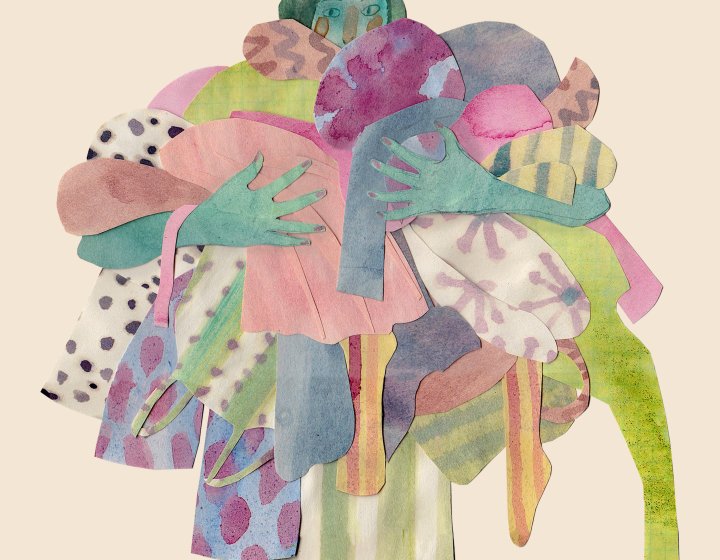
Empowering through repair: Sustainable Fashion community bring mending workshop to Falmouth high street
02 October 2025
Members of Falmouth’s Sustainable Fashion MA (Online) course are leading a mending and repair work...
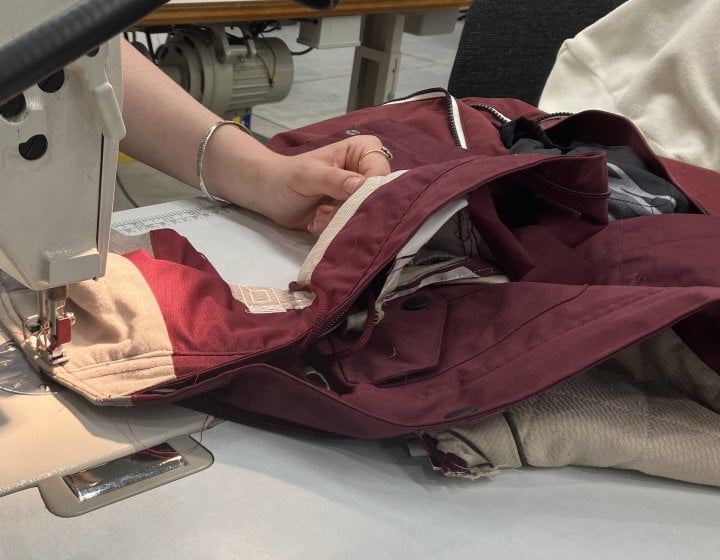
Fashion Design students breathe new life into used ski jackets
04 September 2025
Students in the second year of Falmouth’s Fashion Design BA have worked on an exciting circular de...
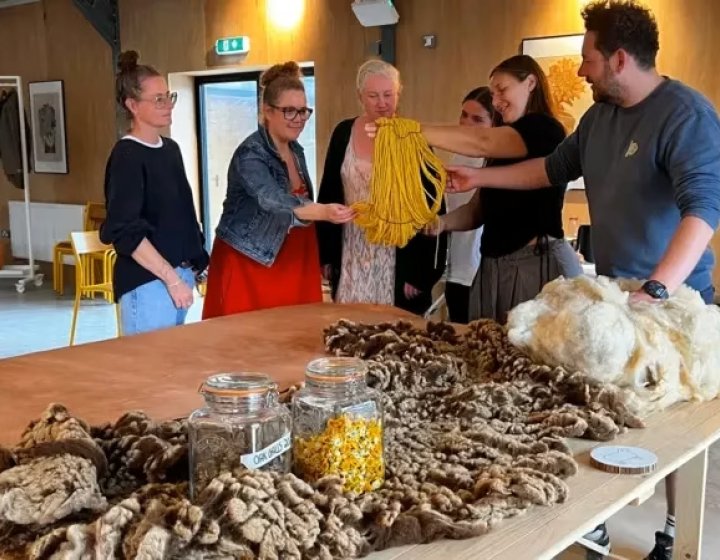
Sustainable Fashion students go behind the scenes on pioneering “fashion farm”
18 August 2025
Students on Falmouth’s online master’s in Sustainable Fashion recently visited Great Cotmarsh Fa...
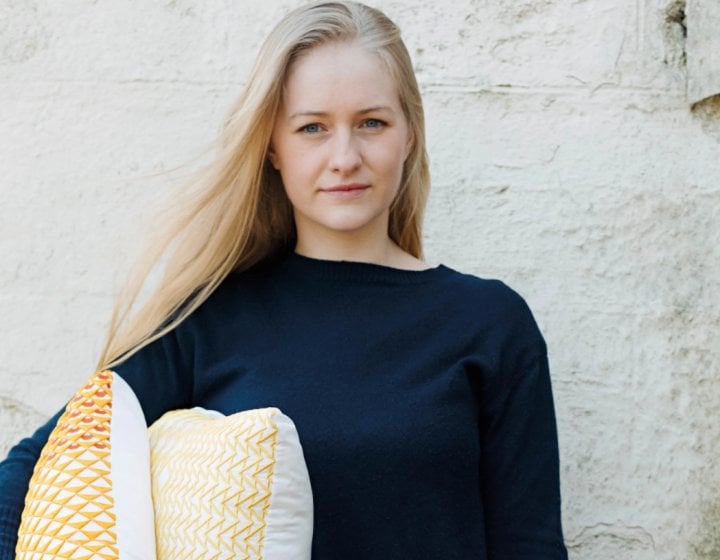
Natural Innovation: the Falmouth designer reimagining textiles with biomaterials
11 July 2025
Alice Selwood is a multitalented creative. After graduating from Falmouth’s Textile Design BA in 2...
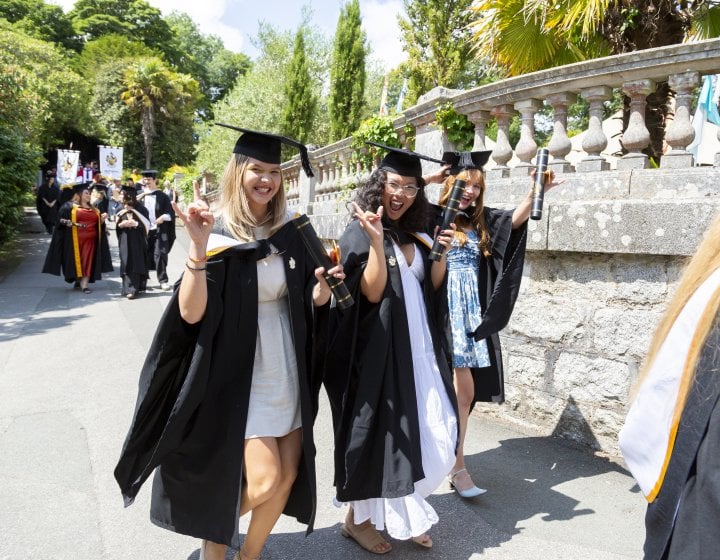
Graduation Success Stories: Where our 2024 graduates are now
04 July 2025
For more than a century Falmouth has shaped generations of artists, designers, makers and entreprene...
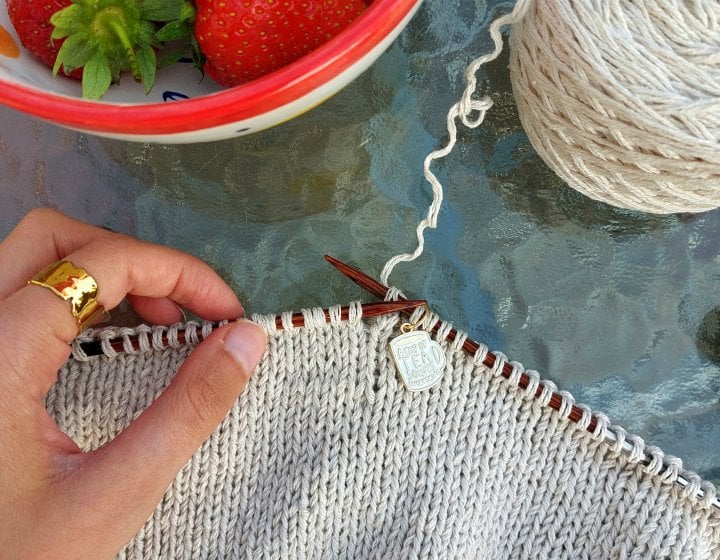
Changing careers through online study
10 June 2025
In this article, Sustainable Fashion MA (Online) student Alanis tells us about how she’s transform...
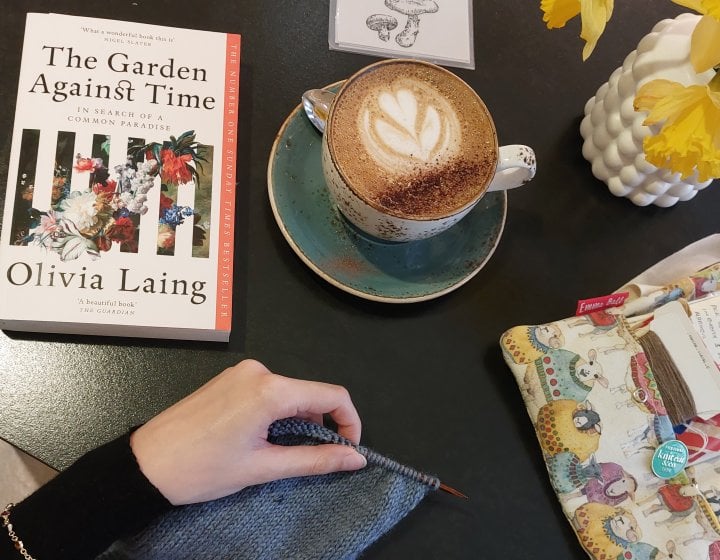
My experience studying online with ADHD
24 April 2025
Hey, my name’s Alanis and I study Sustainable Fashion online with Falmouth. Last month I was diagn...
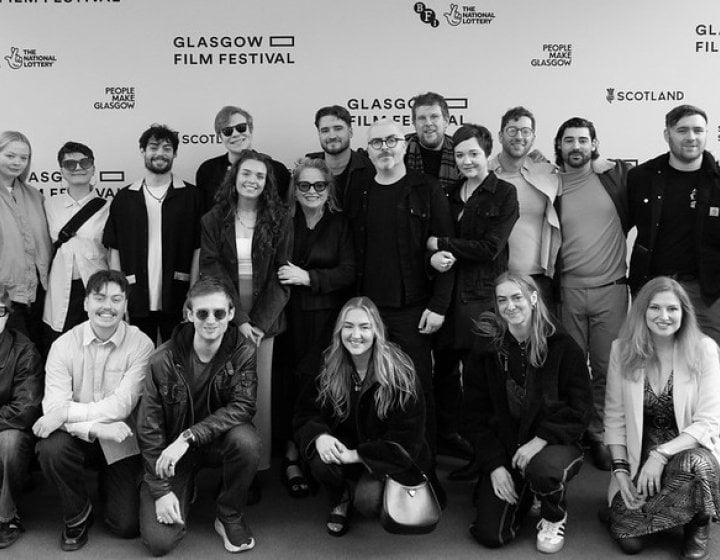
‘The Birdwatcher’ premieres at UK’s leading horror film festival
21 March 2025
Students from across Falmouth’s School of Film & Television, Fashion & Textiles Institute, and Gam...
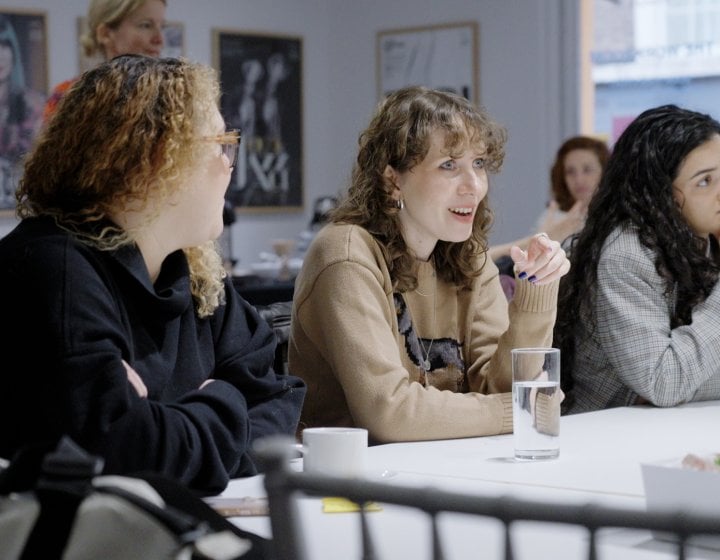
Sustainable Fashion students collaborate with The Independent
27 February 2025
Members of Falmouth’s Sustainable Fashion MA (Online) community recently came together with The In...
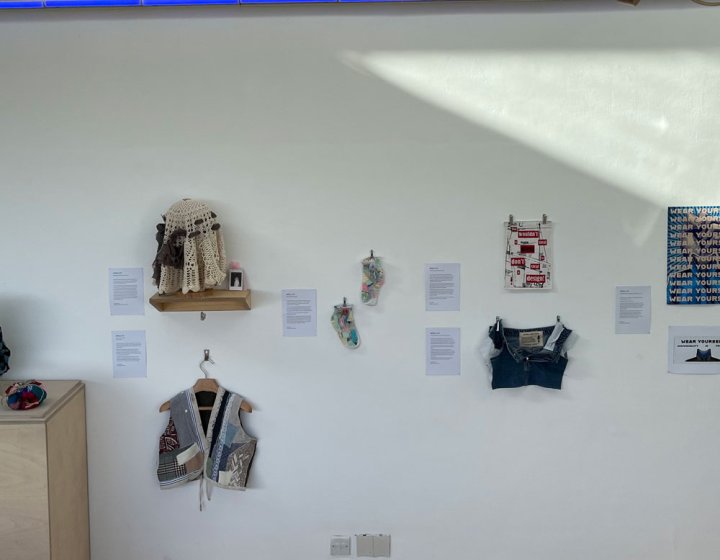
Fashion and Textile students’ work displayed at Newlyn Art Gallery & The Exchange
12 February 2025
Students across Falmouth’s Fashion & Textiles Institute have been selected to have their work feat...
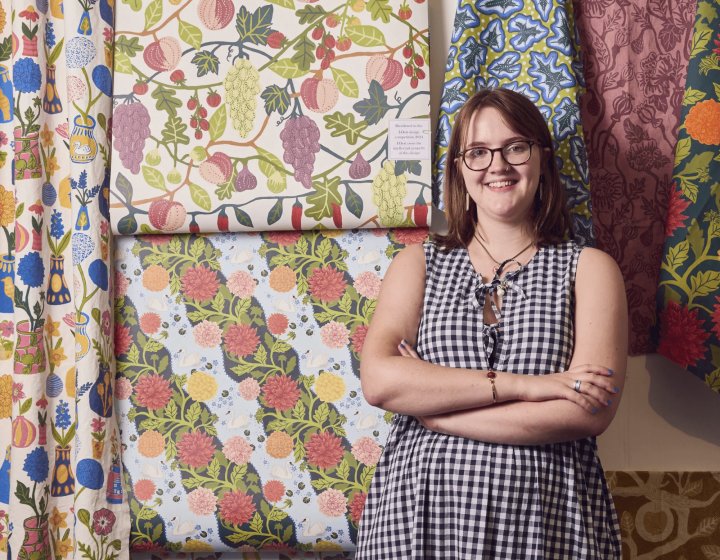
Graduate Spotlight: Textile Designer Lucy Martin
03 February 2025
Nature-loving textile design graduate Lucy Martin’s career has got off to an exciting start. Hot o...

Why I chose to study Fashion Marketing at Falmouth
03 January 2025
This article was written by Fashion Marketing BA(Hons) student Belle.
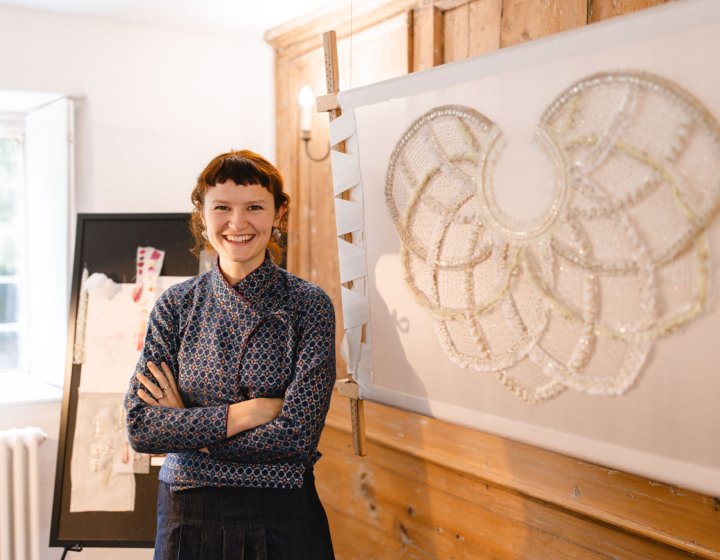
Credit: Oliver Holmes
From CHANEL to Queen Camilla: a catch-up with Textile Design graduate Beth Somerville
10 December 2024
2023 was a big year for Textile Design BA (Hons) graduate Beth Somerville. From being named overall ...
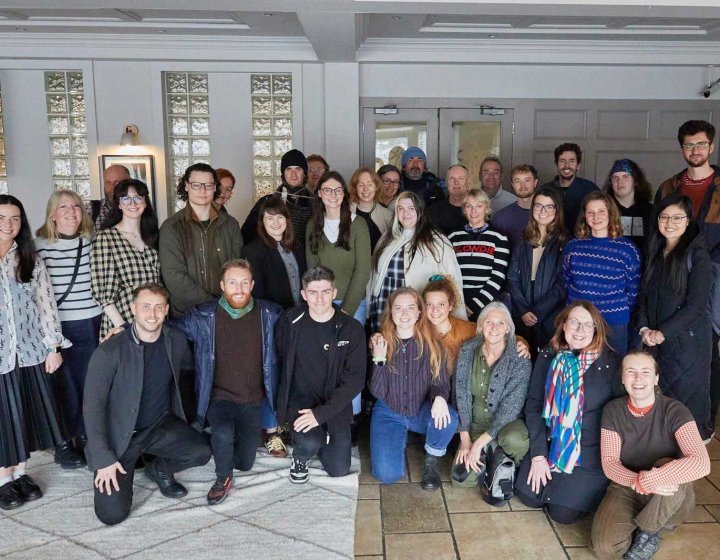
The group at the residency. Credit: Future Island-Island
Sustainable Fashion students win Regenerative Rathlin Open Design Competition
03 December 2024
Two students on Falmouth’s online master’s in Sustainable Fashion have recently attended a desig...
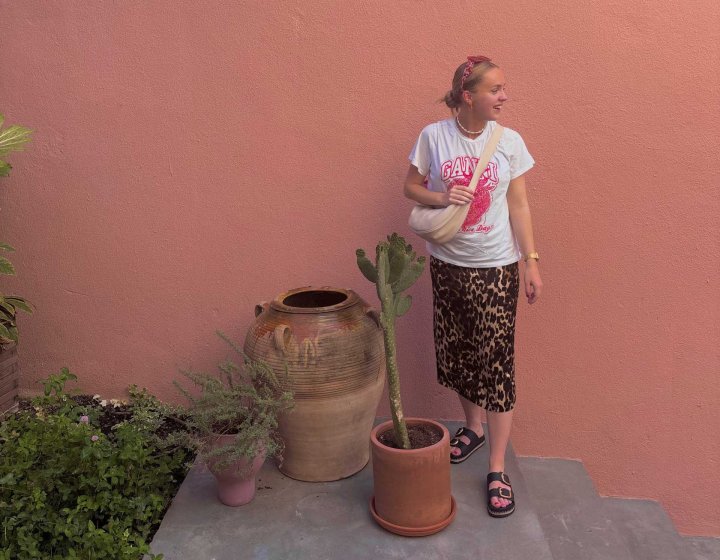
Graduate Spotlight: 3D and Digital Product Design Manager Georgia Featherstone
13 November 2024
Since graduating from Fashion Design BA(Hons) in 2021, Georgia Featherstone has made an impressive r...
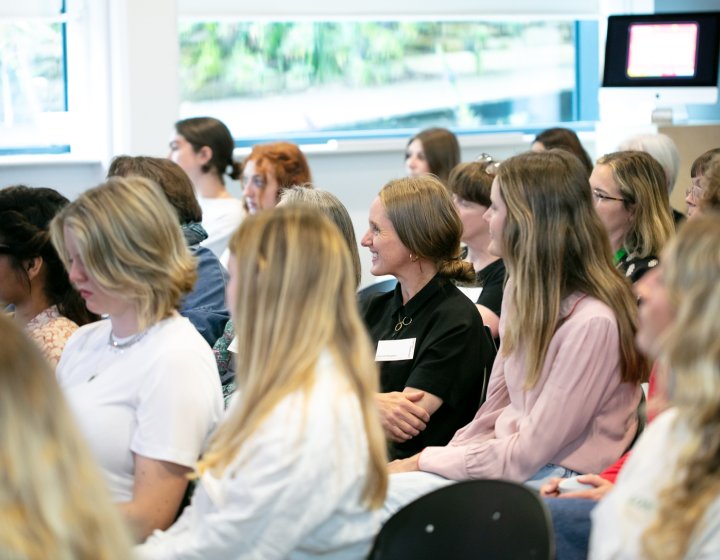
Credit: Matt Jessop
Fashion & Textiles Institute host inaugural Fashion Redesign Forum
26 September 2024
A team of senior lecturers, students and senior technicians from Falmouth’s Fashion & Textiles Ins...
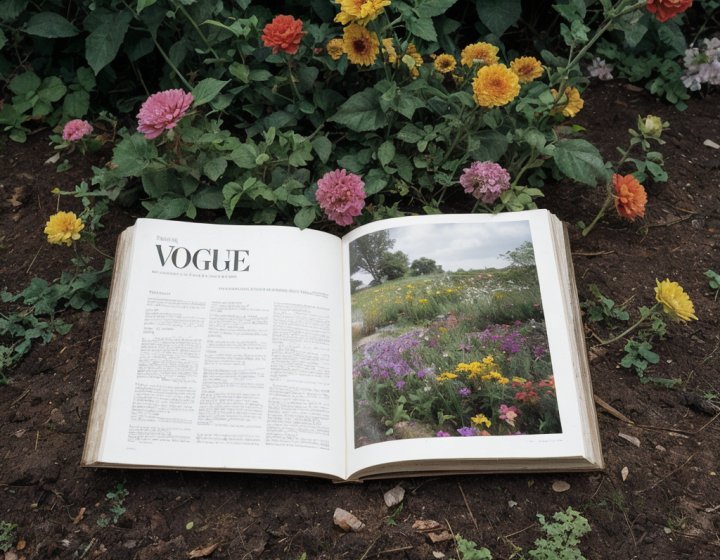
Erin Donohoe (2024), Ai generated image of a Vogue magazine that can be planted in soil and grow and ‘Vogue Garden.’
Meet Erin Donohoe, the Sustainable Fashion student reimagining fashion magazines
08 August 2024
Sustainable Fashion MA (Online) student Erin Donohoe has created a powerful reimagining of the fashi...
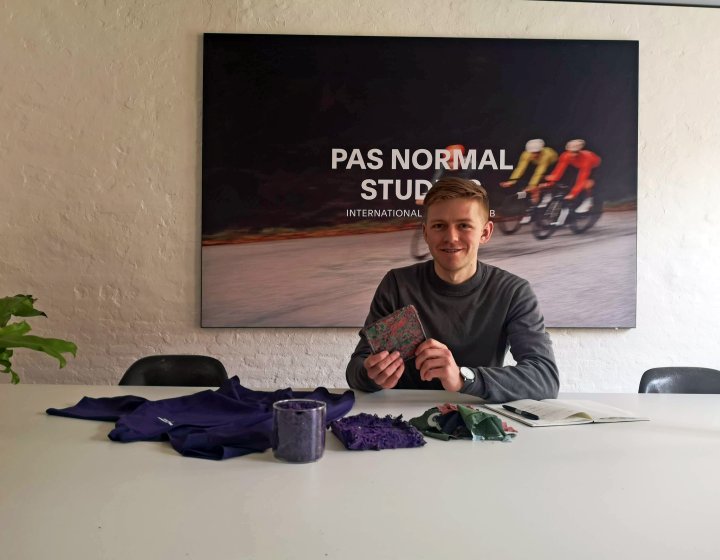
From Sustainable Product Design student to inspiring sustainability leader
22 July 2024
Charlie Clarke is a rising star in the world of sustainability. Since graduating from Falmouth’s S...
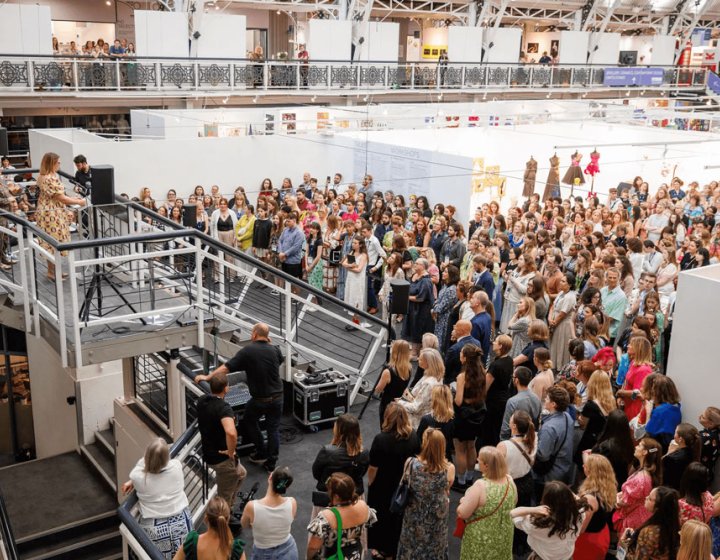
New Designer awards fruitful for five students
12 July 2024
The prestigious annual New Designers awards are judged by key industry leaders to find the rising s...
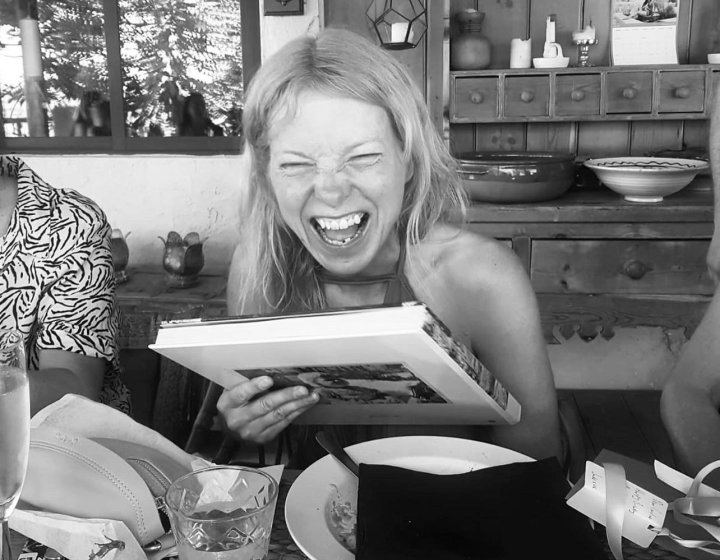
Sustainable Fashion MA student Caroline Garland attends the Global Fashion Summit for The Independent
25 June 2024
Caroline Garland is a writer and aspiring fashion journalist. As a student on Falmouth’s online ma...
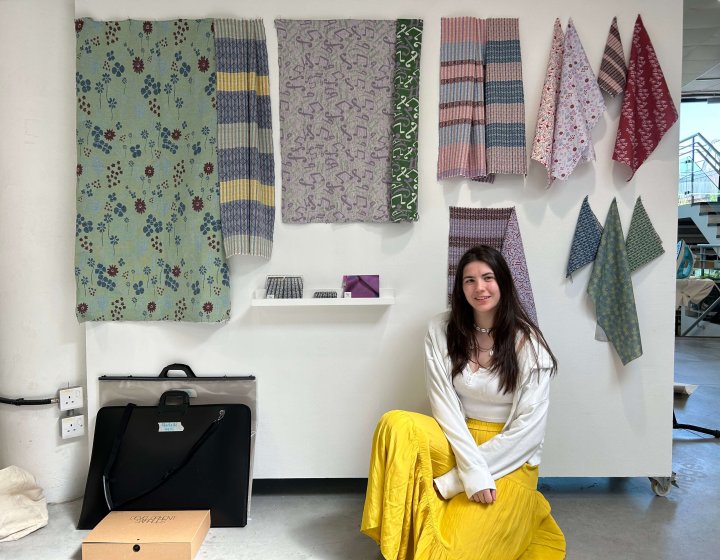
Textiles graduand secures job at historic silk mill
24 June 2024
Textile Design BA graduand Charlotte Wells will become a Mill Assistant at Whitchurch Silk Mill - th...
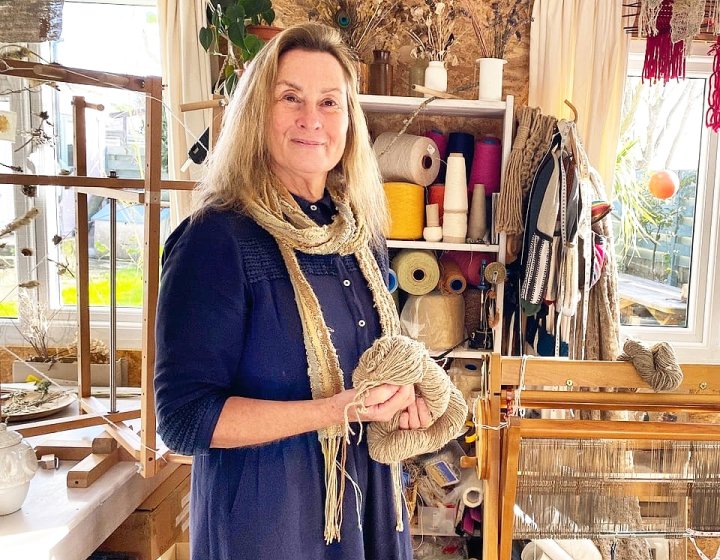
Textile Design BA graduate and Nettle Revolution founder wins the Theo Paphitis, Small Business Sunday Awards
22 May 2024
In an inspiring event earlier this year, Jane Gray, Founder and Coach of health and wellbeing compan...
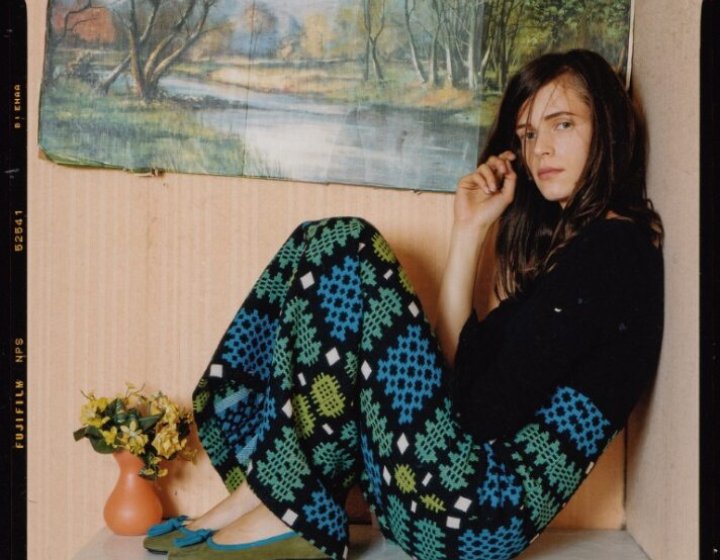
5 Minutes with: Anti-Fashion Photography Disruptor, Donald Christie
03 May 2024
Donald Christie’s iconic photography style was a seminal part of the ‘anti-fashion’ 1990s yout...
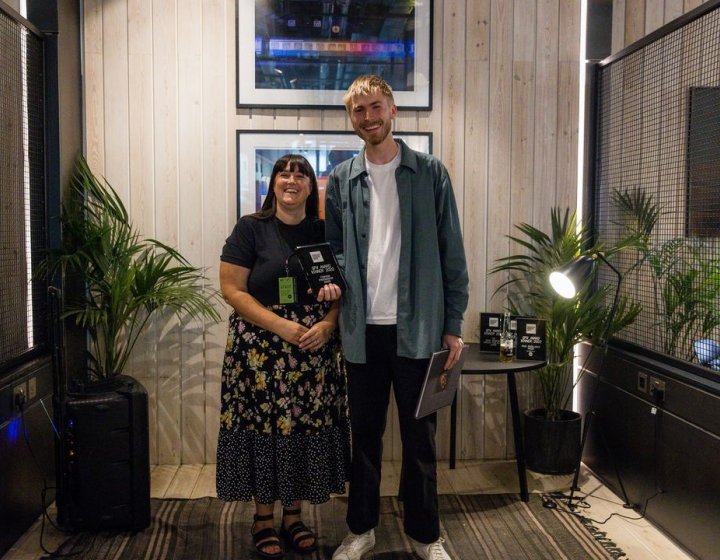
How Falmouth’s future-focussed approach is inspiring graduate fashion photographer Torgeir Rørvik
24 April 2024
A top award winner in 2022 at Graduate Fashion Week, the world’s largest showcase of BA fashion ta...
How you'll learn & be assessed
You'll choose between a three-year degree with short placement options, a four-year course with a year-long industry placement(s) or a four-year course with Integrated Foundation Year.
This Fashion Marketing degree focuses on interdisciplinary collaboration with courses such as Fashion Design, Fashion Photography and Interior Design, as well as delivering live projects in a realistic, industry-focused environment. Industry partners – such as Gap, John Lewis and Fred Perry – set assignments, while our academic staff provide lectures, studio practice, demonstrations, field trips, seminars and tutorials. And with our Study Abroad scheme, you'll have the chance to spend a semester at a partner institution in a location like Italy, Spain, Holland, the USA or Singapore.* Fashion Marketing at Falmouth supports and encourages employment opportunities, giving you the scope for a year out in industry or short-term summer placement. This allows you to experience contemporary practice, building employability skills and highly valuable industry insights to further your career prospects.
At Falmouth, we use a 'digitally enhanced learning & teaching' approach. Your experience will always be predominantly in-person, including seminars, tutorials and studio teaching, with some, more targeted elements, being online either live (synchronous) or pre-recorded (asynchronous). You can read more here.
* Due to Brexit we cannot guarantee study exchanges as a part of this course.
100% of your assessment will be coursework.
Assessment methods
Summative Assessment is conducted via 100% coursework in the form of:
- Sketchbooks
- Digital Portfolios
- Written reports - digital
- Printed documents/publications
- Digital Communications files
- Verbal presentations and pitches
- Showcase and exhibitions
There are two summative assessments points in the year; they take place at the conclusion of the module near the end of the study block and, depending on the module structure, comprise of a maximum of two elements, e.g. a research and development document and a verbal presentation.
Facilities
- Open shared studio space of the Design Centre
- Digital design: Adobe Creative Cloud/CLO3D
- Fashion and Textiles Stores
- iMac Desktop Computers/MacBook Pro Laptops
- Digital and traditional printing facilities for paper and fabric, e.g. Riso Printer
- Laser and vinyl cutting equipment
- Publication Lab with binding and trimming equipment
- Photographic studios and equipment Hire Store
- Mannequins and Display furniture
- Online access to subject specific journals and platforms e.g. WGSN and LS:N Global, Edited, Mintel, Statista
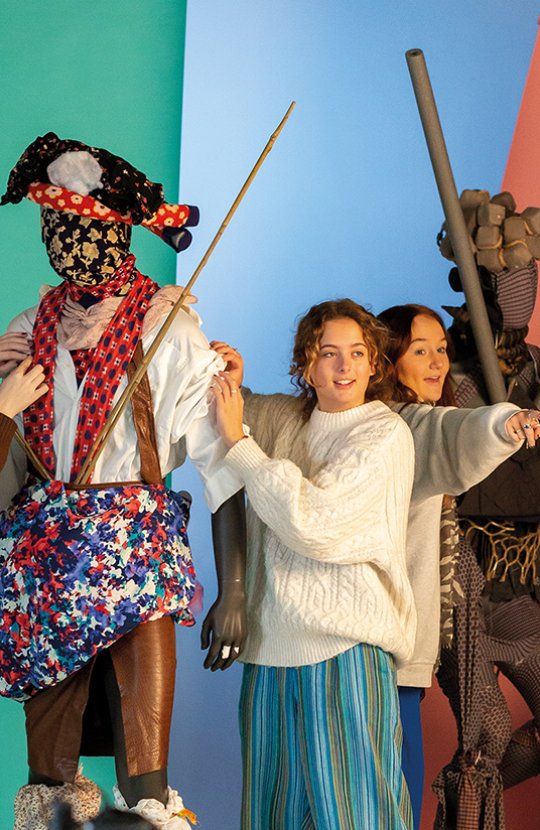
Virtual tour
Discover where you’ll spend your time as a student with our 360° tour, showcasing our facilities, accommodation, town and scenery.
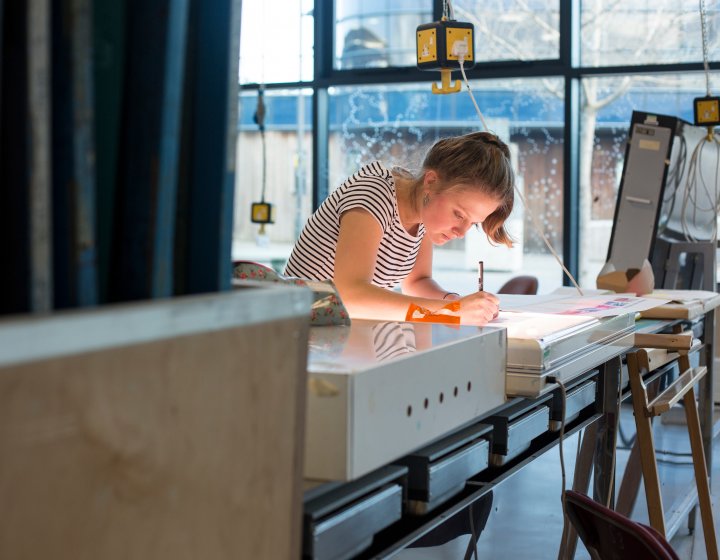
Fashion & Textiles Facilities
Centred around studio spaces that cater for solo and group working, our Fashion & Textiles Insti...
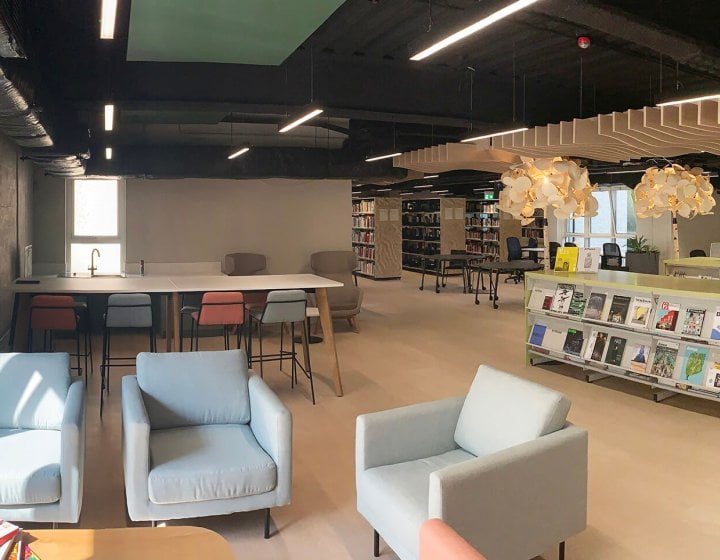
Library Facilities
Offering extensive collections, our two libraries provide a wealth of digital resources, magazines, ...

Sports Centre
Our Sports Centre, on Penryn Campus, includes a spacious gym with up to 90 of the latest, new statio...

"From my time on the course, I have developed an extensive portfolio of knowledge and skills which have given me real confidence in my future."
Belle Bouilov, graduate
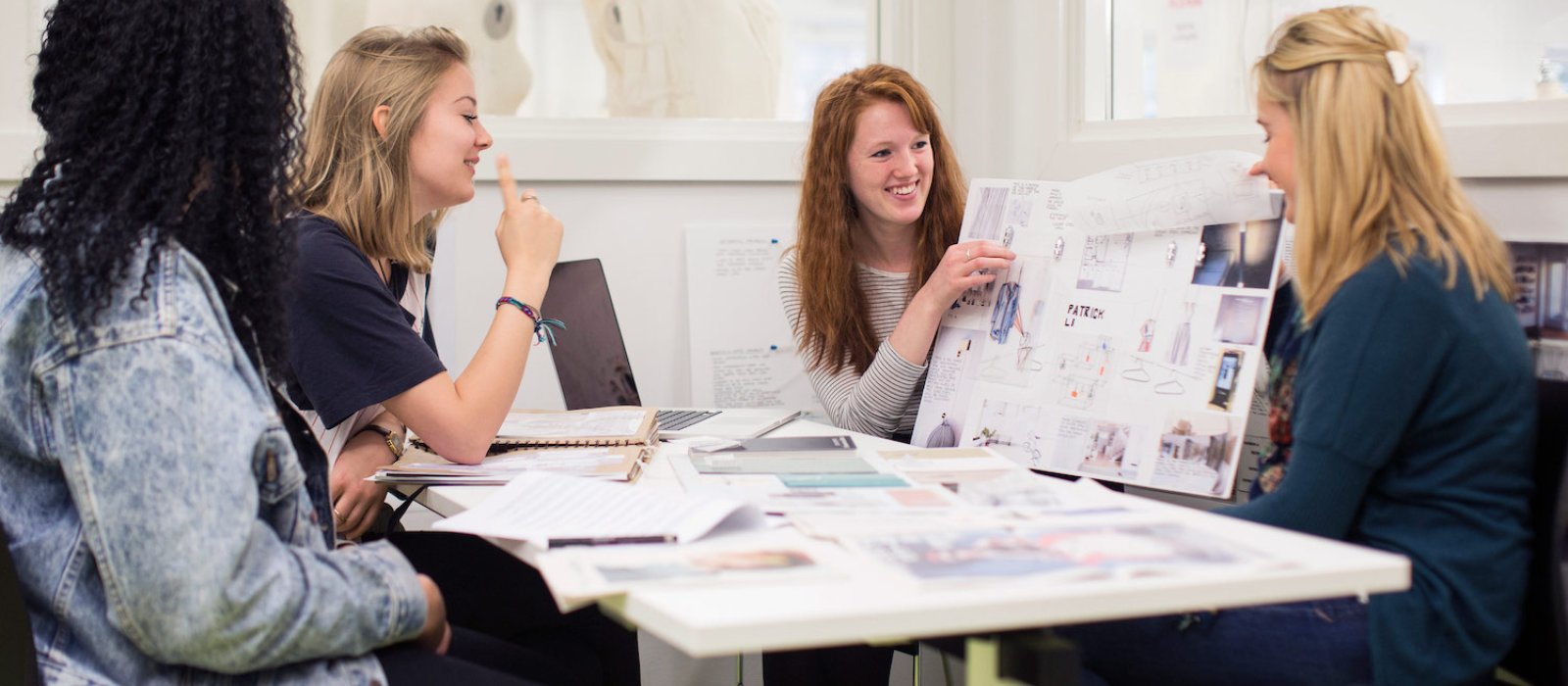
Staff
You’ll be taught by experienced fashion marketing practitioners with detailed knowledge in areas such as social media and marketing communications, PR and events management, creative direction and retail planning.
Some members of staff only teach on specific modules, and your course might not feature every staff member who teaches on the course.
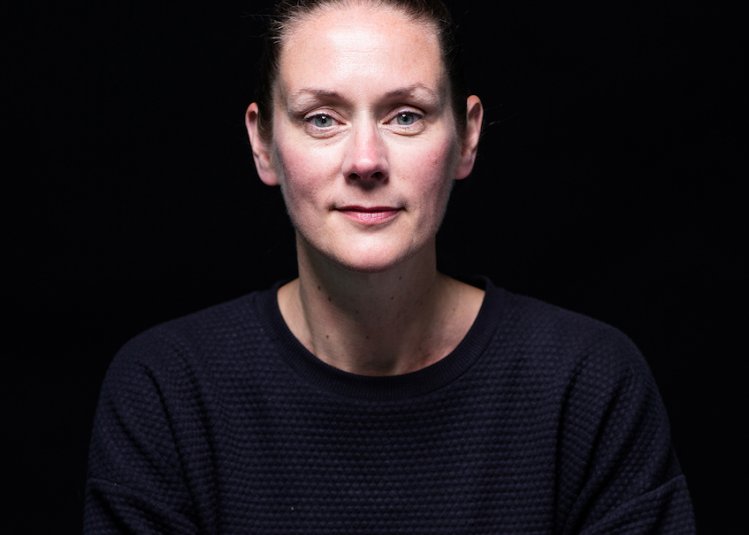
Emma Goff
Course Leader, BA(Hons) Fashion Marketing
Emma graduated from Ravensbourne with a BA(Hons) in Fashion Design, where she and a colleague were a...

Elizabeth Allen
Lecturer Fashion Marketing
Elizabeth studied Design and Development for the Fashion Industry at London College of Fashion, b...
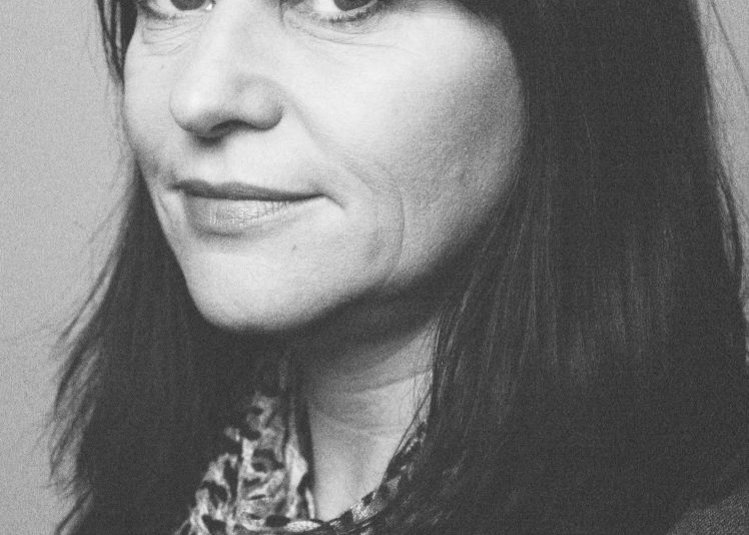
Dr Julie Ripley
Course Leader, BA(Hons) Costume Design for Film & TV
Dr Julie Ripley is a senior lecturer and course leader for BA(Hons) Costume Design for Film & TV...
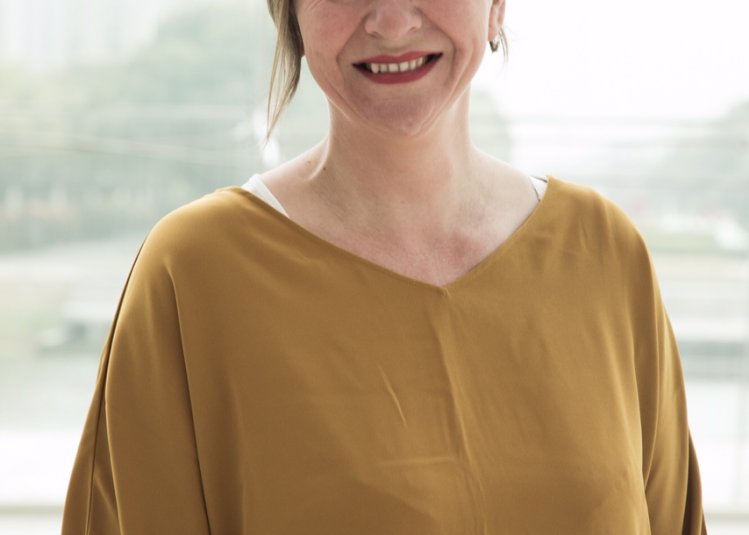
Dr Kate Strasdin
Senior Lecturer
I joined Falmouth in 2009 as an Associate Lecturer, teaching across the fashion and textile undergra...
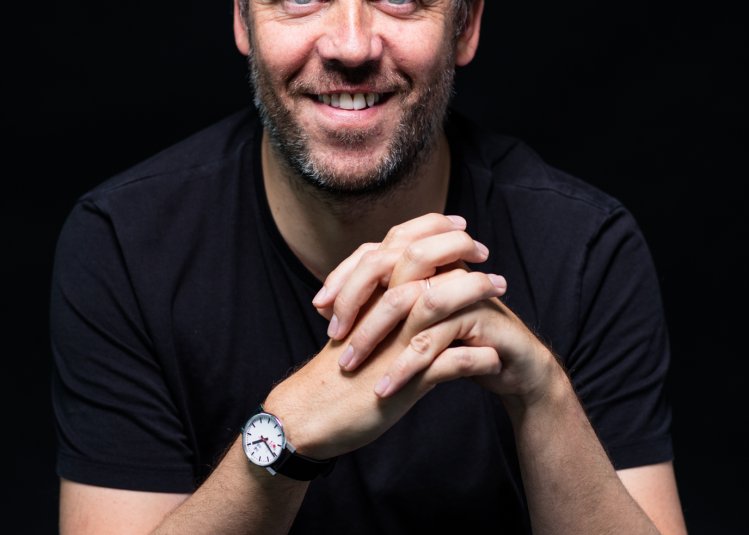
John Boddy
Head of Fashion Design
John studied fashion design, specialising in womenswear, at Central Saint Martins College of Art and...
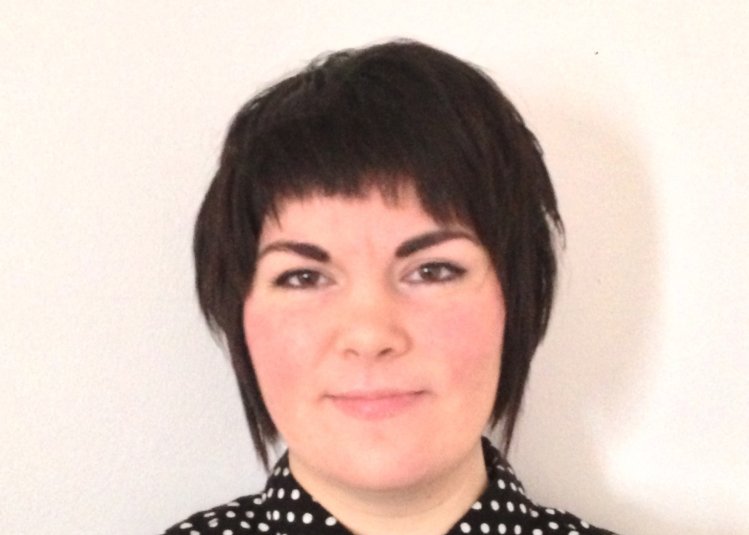
Freya Moses
Senior Technician, Printed Textiles
I work as a senior technician within the Fashion & Textiles Institute. I specialise in printed t...
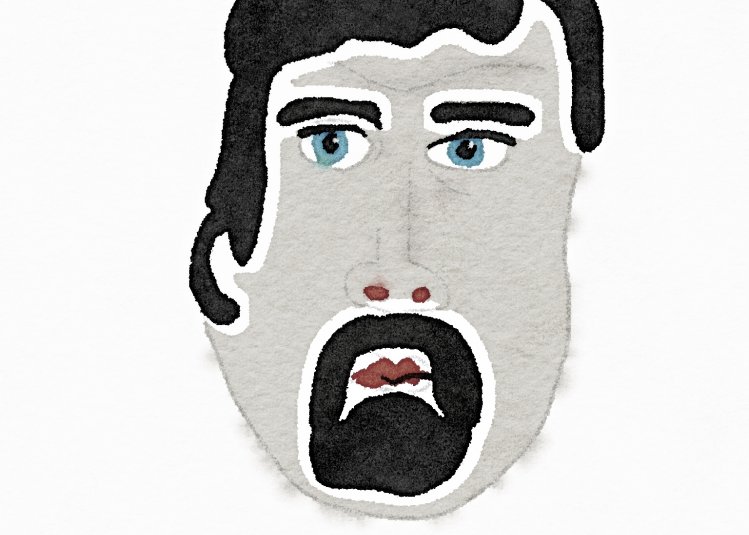
Adam Allen-Foord
Senior Technician
I started my professional life literally falling off horses for a living and I have spent the many y...
Careers
Our Fashion Marketing graduates are forging exciting careers across the fashion industry and beyond, working for established brands, agencies and starting their own businesses. Recent graduates are working as:
- Alexander McQueen, Digital and Social Media Specialist
- B. The Agency, PR Accounts Director
- Burberry, Social Media Manager
- Endelman, Digital Account Manager
- Havas, Marketing Experience Manager
- Hugo Boss, PR Officer
- Finisterre, PR & Influencer Manager
- Vinted, Senior Brand Specialist
- The White Company, Senior Brand Concept Manager
What can you do with a fashion degree?
There are opportunities to pursue costume design for film and television or fashion media. Alternatively, graduates may wish to move into styling, advertising or editing.
How to apply
Ready to apply for 2026?
You can apply for our undergraduate degrees via UCAS. You'll need our university UCAS code (F33) as well as your course code (which you'll find on your course page) for your application.
Applying as an international student?
There are a number of different ways to apply to study at Falmouth as an international student. Find out how you can become part of our creative community.
| Course route | UCAS code |
|---|---|
| Fashion Marketing BA(Hons) three year degree | W231 |
| Fashion Marketing BA(Hons) with Integrated Foundation Year | FY15 |
| Fashion Marketing BA(Hons) with placement year | W23S |

Application advice & interview information
Go to ToolkitFor starting your studies in 2026
UK applications: 14 January 2026 (for equal consideration)
Applications after the 14 January will be considered on a first-come, first-served as long as there are places available. Apply for this course now.
For starting your studies in 2027
UK applications: 13 January 2027 (for equal consideration)
International fee payers
International fee payers can apply throughout the year. But we recommend applying as early as possible, to make time for visa and travel arrangements.
We consider all applications on their own individual merit and potential.
Our diverse community is creative, innovative and entrepreneurial. We recognise that these qualities aren’t always shown in academic grades alone. That’s why, while many of our applicants achieve high academic grades, we also welcome those who can demonstrate their potential through an interview.
We welcome applications from all subject backgrounds, whether you’ve specialised in STEM, the arts or humanities. Find out more about our Entry Requirements here.
Course routes & entry requirements
BA/BSc(Hons) three year degree: minimum 96 UCAS Tariff points
BA/BSc(Hons) four year degree with professional placement: minimum 96 UCAS Tariff points
BA/BSc(Hons) four year degree with Integrated Foundation Year: minimum 64 UCAS Tariff points
At Falmouth, we'll consider the equivalency of your specific qualifications against our entry requirements and support you through your application journey.
View our International Entry Requirements
Language requirements
For applicants whose first language is English we require you to have or be working towards GCSE English Language Grade 4 (C), or equivalent.
If English is not your first language you will need to meet the same standard which is equivalent to the IELTS Academic 6.0 overall score, with at least 5.5 in Reading, Writing, Speaking and Listening. We accept a range of in country equivalencies and approved tests.
If you need a student visa to study in the UK, you may need to take a recognised language test. You can read our English Language Requirements for more information.
Fees, costs & funding
Tuition fees
| Annual tuition fee | Student |
|---|---|
| £9,790 per year | Full-time UK |
| £19,950 per year | Full-time EU/international |
| £1,955 per professional placement year | Full-time UK and EU/international |
| £5,760 per Integrated Foundation Year | Full-time UK |
| £19,950 per Integrated Foundation Year | Full-time EU/international |
| Annual tuition fee | Student |
|---|---|
| £9,535 per year | Full-time UK |
| £17,950 per year | Full-time EU/international |
| £1,905 per professional placement year | Full-time UK and EU/international |
| £5,760 per Integrated Foundation Year | Full-time UK |
| £17,950 per Integrated Foundation Year | Full-time EU/international |
Tuition fees for September 2027 will be confirmed in summer 2026.
Tuition fees are set annually and are subject to review each year. The University may therefore raise tuition fees in the second or subsequent years of a course, in line with inflation and/or the maximum permitted by law or Government policy. Students will be notified of any changes as soon as possible.
The figures above don't include accommodation and living costs
Typical course costs
Recurring annual costs
- Printing Costs £50 per year.
- Consumable materials. £200 per year.
- Your Final Major Project may incur further printing and production costs of approximately £350-£400 depending on the output designed and your personal style.
- Optional CIM membership - current fee £65 per year
Optional study trips
- A study trip to London Fashion Week, approx. £250
- Optional overseas study trip. £450-£500
One-off costs for the duration of the course
- If you choose to do a micro-internship, there may be costs associated with this, for example travel or accommodation costs which will vary significantly depending on your placement.
- Laptop recommended: Apple MacBook or PC compatible for Adobe Creative Cloud, ideally with 12GB SSD, 16GB RAM and USB-C. Workshops are delivered using Apple computers, though students are welcome to use PCs if preferred.
If you need to bring equipment or materials with you, these will be outlined in your Welcome Letter.
Course equipment and costs
Essential for the duration of the course (costs estimated):
- Black and white and colour printing (approximately £60 per year)
- Art materials for presenting work (approximately £50 each year)
Recommended for the start of the course (costs estimated):
- Black hard-back sketchbook, white pages, A4 or 30cm x 30cm (approximately £10)
- Fine black writing pen or sharp pencil for sketchbook annotation (approximately £10)
Nice to have at the start of the course (costs estimated):
- Notebook, pens (approximately £10)
Although you may use digital notetaking. Please consider that you may be asked to put your mobile phones away for the duration of the teaching session.
It is useful to have the equipment listed below for the start of the course, but it is not essential (costs estimated):
- Scissors / scalpel blades + cutting mat (approximately £15)
- Glue Stick or double-sided tape (approximately £5)
- Small metal ruler (approximately £10)
Digital access:
Fashion Marketing students have studio-based access to MacBook Pros (13” +15” Laptops) with access to Adobe Creative Cloud software and there are desktop Apple Macs accessible throughout the Design Centre and Library during opening times.
If you are considering purchasing your own laptop, to allow more flexibility to work off-campus, the following specifications are advised: Mac or PC with 16GB RAM and 512GB SSD, we also recommend a student subscription to Adobe Creative Cloud. (Approx £70 p.a.)
You can expect to spend approximately £200 on consumables for each year, e.g. printing costs. This can be less in year-one due to the nature of the project (shared group work). In year-three the final major project is likely to cost in the region of £350-£500. This is for the purpose of, for example, a research trip or professional print production (magazines/publications) or graduate showcase presentation.
Where appropriate, we encourage and accept digital submissions. However, understanding and demonstrating digital translation to professional print is a key part of the course.
Study trips and costs: (optional)
We are expecting that there will be an optional study trip, e.g. to London during London Fashion Week in mid-February, which we hope all students can attend. The cost will be confirmed at the beginning of term but is estimated to be around £250-£300, depending on student numbers. A nonrefundable deposit will be required within the first weeks of term when confirmation of the trip will be communicated.
Work Placements: (consideration)
Students may choose to undertake a non-essential self-funded work placement/internship across the summer break between stages, one and two, two and three. It is worth considering what the cost implications of this may be if you are required to live and work in London or another location outside of Cornwall for three months or more.
Membership: (optional)
Chartered Institute of Marketing (CIM): The Marketing Club
Joining ‘The Marketing Club’ allows you exclusive access to the global marketing community, with the resources and knowledge you need to achieve your development goals and initiate your professional journey as a marketer. During the first term there will be a presentation to explain the benefits of CIM membership and the accreditation to which BA(Hons) Fashion Marketing at Falmouth is affiliated. Membership costs £10 for the whole time you’re studying. The Marketing Club membership is arranged through your course tutors.
Additional typical course costs for Integrated Foundation Year pathway
- £250 for materials
- A laptop/desktop computer
- Adobe Creative Suite
To engage in the digital learning activity, although you will be able to access IT suites on campus, you will benefit from a laptop to access the platforms and tools we use. Depending on your subject, you may need a specific type of computer. If you're unsure about what you might need, please contact our course advisors.
You will be recording your creative progress and writing about your work throughout the Integrated Foundation Year and so a laptop computer and a smartphone are highly recommended.
Typical course material costs:
- £250 - Recurring annual costs may include: art/creative materials and costs towards your end of year show exhibition and can vary depending on material choices and specialism.
Study trips:
There are several field trips, and you will need to allow for some costs for student contributions towards coach hire and exhibition entry. Total annual cost of day trips approximately £60.
If you want to attend the planned week-long residential trip to London in the Spring of 2026 then you will need to plan for a £100 deposit payment shortly after arriving on the course, to secure a place, and to budget for a total trip cost of approx. £400 - to be paid in instalments.
Funding
For information about funding available, please visit our student funding pages.
Ask a student
What better way to find out about life at Falmouth University than by asking our current students?
From course details and academic support, to the social scene and settling in, our students are ready and available to answer any questions you might have. Simply set up your account, send them a question and they'll get back to you within 24 hours.
Open Days and events
From visiting campus to online application advice, get all the information you need about joining our creative community.
Find an event
